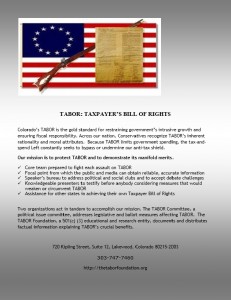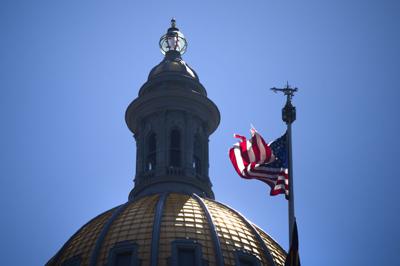Jefferson County is one of more than a dozen counties in Colorado that still enjoys the protections of the Taxpayer’s Bill of Rights (TABOR). This constitutional amendment requires voter approval for tax increases and debt. It also modestly limits how fast government can grow. The formula for automatic tax increases is the prior year’s budget plus adjustment for inflation and local growth.
Jefferson County government is presently allowed to grow 3.9% annually under the formula as described in a Board of County Commissioners agenda for July 19 (page 171). That’s a reasonable amount for government growth – compare it to your household. Have you gotten nearly a 4% increase in your income?
Yet, the county commissioners have spent the last few years claiming they have insufficient revenue to maintain operations. Now they blame the revenue problem on the pandemic, yet the county received close to a couple hundred million in COVID relief money.
That pile of federal money still didn’t calm down the county commissioners’ quest to get rid of our Taxpayer’s Bill of Rights.
To continue reading the rest of this story, please click (HERE) to go to Complete Colorado
#ItsYourMoneyNotTheirs
#ThankGodForTABOR
#VoteOnTaxesAndFees
#FeesAreTaxes
#TABOR
#FollowTheMoney
#FollowTheLaw
 There was excellent news last month. It appears the Plaintiffs have decided not to move forward with the existential threat to TABOR, ending the Kerr vs. Polis lawsuit!
There was excellent news last month. It appears the Plaintiffs have decided not to move forward with the existential threat to TABOR, ending the Kerr vs. Polis lawsuit!



